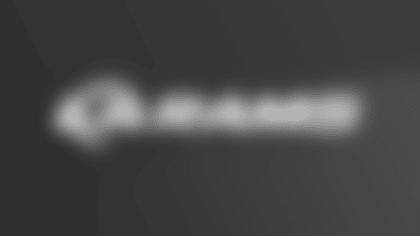According to NFL Operations, nearly 10 percent (30 out of 318) of the Pro Football Hall of Fame's current members attended Historically Black Colleges and Universities (HBCUs). Whether they made it to the pinnacle of post-playing career achievement or their playing days ended after college, though, they represent not only greatness in the sport but examples of triumph in the face of adversity.
That history is preserved and told through the Black College Football Hall of Fame, which was co-founded in 2009 by former Rams quarterback James Harris and former Washington quarterback Doug Williams. In wake of heightened efforts by current players to combat racial injustice, the journeys of its inductees can serve as important educational vehicles for the public.
A handful of them will be shared during tonight's 5:30 pacific time ceremony, "Black College Football... The Road to Equality", emcee'd by NFL Network's Steve Wyche and CBS Sports' Charles Davis.
"What this is, is to have some of those greats – Art Shell, the first black head coach from an HBCU, tell his story and what he had to deal with, or some of these coaches like a Willie Jeffries, who put a ton of players in the NFL, tell their stories, because this problem is not new," Wyche told theRams.com in a phone interview. "What is happening in the streets today is not new, so hearing it from the perspectives of guys who dealt with this during segregation – when HBCUs were the only schools black people could attend – to now hearing it from players like Bears running back Tarik Cohen or Colts linebacker Darius Leonard, it's important for people to understand the important role of HBCUs and how they provided the NFL with so much, and then how the players and coaches provided society some of the judges, some of the lawyers, some of the leaders who are dealing with this issue."
Racial injustice at the college and pro levels
African American players dealt with racial injustice both during and after their college careers.
Black college football play started in 1892 with segregation well-established and enforced by Jim Crow laws. The hall of fame's website explains that although college football created a new pastime and source of patriotism for America after World War I, the circumstances still prevented young African American men from realizing their dreams of playing the sport wherever they wanted. As a result, a vast majority of them went on to attend HBCUs from 1892 to 1965.
Much like today, though, discrimination was still very prevalent despite the passage of measures such as the Voting Rights Act of 1965. Harris, who became the first black player to start a pro football season at quarterback in 1969, said the opportunity to play the position was "bittersweet" because of the number of great players denied the chance due to the color of their skin. For example, Tony Dungy played quarterback at Minnesota, but the Steelers didn't view him as an NFL quarterback and converted him to safety instead.
"In order to play pro ball, you had to switch positions," Harris told theRams.com in a phone interview Monday. "You wouldn't get a chance. When I came into the league and as I traveled around, guys would come and introduce themselves and see me at the hotel. That always saddened me when they shook hands and wished me good luck, because my first year, I knew that could be me. I knew that night, if I had a bad game, that I would be them, pulling for somebody else."
When Rams offensive tackle Jackie Slater, one of the 30 HBCU products in the Pro Football Hall of Fame, was at the last College Football All-Star Classic in Chicago in 1976, he was the only African American offensive lineman from an African American school. He also played third string left tackle and guard as well as third-string right tackle and guard while there for two weeks.
Still, working with future Pro Football Hall of Famer Sid Gillman as his squad's offensive line coach, he learned that the game "superseded race." As he competed on a daily basis with players such as Lee Roy Selmon and Steve Niehaus, the future first and second overall picks in the 1976 NFL Draft respectively, Slater noticed they were no different than the players he went up against while blocking for Walter Payton at Jackson State. Some of the other players he competed against also reminded him of Payton and teammates Robert Brazile and Gary Johnson – all three of whom were selected in the top eight of the previous year's draft.
"The thing that separated good football players from the also-rans was obviously the ability, but then the ability to study, the ability to become a student of the game technically, become a student of the game in general, and the willingness to compete," Slater said in a phone interview Tuesday. "And so after that two weeks in Chicago, I left there coming to Los Angeles pretty much knowing that there was a way you were going to have to conduct yourself to be successful."
As much as Slater believed that, he still experienced a challenging start to his career. His first couple years with the team, he said he was treated "quite poorly, in some cases by some of my teammates," not knowing what their problems were with him.
"But as time went on, with the coaches that I worked with, the players that I worked with, the men that I was on the team with, they concluded that I was a guy that they wanted on the team," Slater said. "And so I didn't have a whole lot to say. I just let my actions in the classroom as a student, my actions on the field as a practice player and preparation guy, determine how I was going to be received by the Rams."
Slater had joined the Rams as a third-round pick, an unexpected outcome considering agents recruiting him said he would be a first round pick like former teammates Payton, Brazile and Johnson. He didn't start in his first three seasons with the Rams, and the explanation he received from a white team scout he befriended was that "everybody knows that the black offensive linemen coming out of the black schools aren't being taught the technique that they need to be successful at this league right away, so you just got to be patient."
"I remember looking at all the other men around me, and I just couldn't see (that)," Slater said. "I was learning what they were teaching as fast as anybody else, and I just couldn't see that."
However, by sticking with the work ethic he took with him from the all-star game, he was eventually able to show how valuable he was to the team and ended up starting 211 career games over the next 17 seasons.
Keeping the legacy alive and creating more opportunities
Despite the lack of formal football training, notoriety, adequate facilities, equipment and venues to showcase talent, coaches like Shell and Jeffries helped establish a pipeline that continues today.
However, even with the success of players like Bears running back and North Carolina A&T product Tarik Cohen, or Colts linebacker and South Carolina State product Darius Leonard – who was named AP Defensive Rookie of the Year in 2018 – only one HBCU player was chosen in this year's NFL Draft, according to The Undefeated.
The lack of HBCU draftees and signees can be attributed in part to the integration efforts of USC fullback Sam Cunningham and Alabama coach Paul "Bear" Bryant five decades ago. As those types of schools began to recruit African American players more heavily, the NFL – with 70 percent of its players being black – has been able to find African American players without necessarily needing to scout HBCU schools. Still, Slater said it's important to continue seeking out HBCUs for future talent for this reason: "The passion and the drive out of necessity to be successful at your chosen craft."
"I think that if it were cultivated properly, we would see more diversity in where ballplayers are being drafted from," Slater said. "Because there is no way you can make me believe that a young offensive tackle at Jackson State University or Mississippi Valley State who is coming from some of the rural areas in our country, some impoverished areas of our country – there's no way you can make me believe those young men aren't motivated to be as good, if not better, than you see playing the game today. And the thing that makes me sure that they're there, is the desperate need to be successful with so many people depending on them."
While the canal isn't completely empty, as Cohen and Leonard prove, it could use some help to keep flowing.
"It's important to keep that history alive, to know that these schools are very important," Wyche said. "But it's also important to know that the Black College Football Hall of Fame and this event is here to raise money to help those universities and programs, because a lot of them ... have some serious financial issues they need to overcome."
As Wyche points out, this pipeline doesn't just create opportunities for the guys on the field.
"There are trainers, right? There are other people involved in football programs that some HBCUs, they just don't have," Wyche said. "They don't have the resources to maybe have 3 or 4 film people to do cut-ups and everything else like that like the major programs. So if we, the Black College Football Hall of Fame, can help raise funds to allow a student-athlete or a student to choose that path, or to help a program have that element to help them succeed? I mean, it's not just the guys on the field who can benefit from the great work the Black College Football Hall of Fame is doing."
For Harris, the continual legacy of the Black College Football Hall of Fame aligns with Wyche's comment about the HBCU products who are judges, lawyers and other leaders addressing racial injustice and other issues.
"We're all reminded, as we travel around this country, how many HBCU students are doing well," Harris said. "We're proud of the contributions so many of our graduates are making. Hopefully we can let that be expressed that we are doing some good things in this country and want to continue to be a part of making a difference. All we're asking, all anyone is asking, we're just looking to do the right thing and let the standards be the same for all people."
Black College Football... The Road to Equality is a free virtual event. To RSVP and get your ticket(s), click here.














